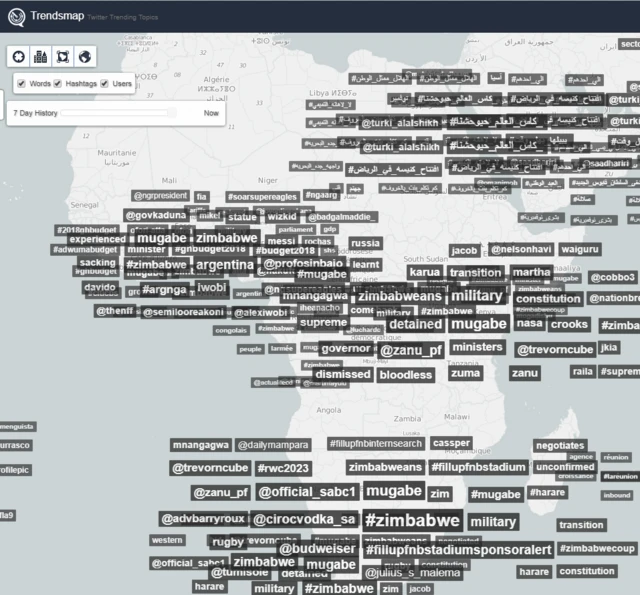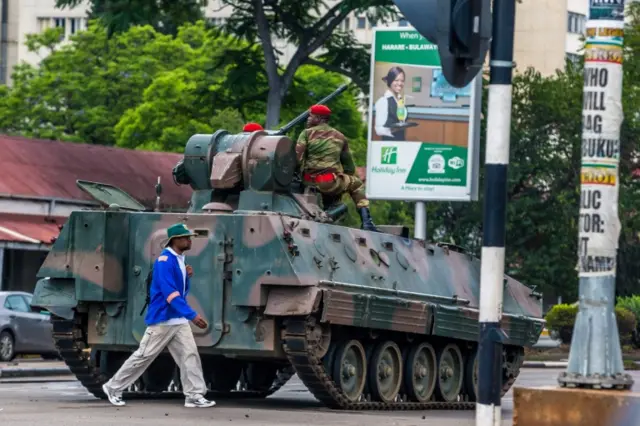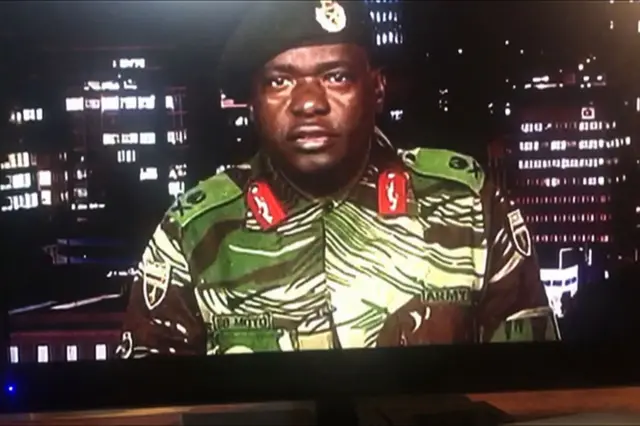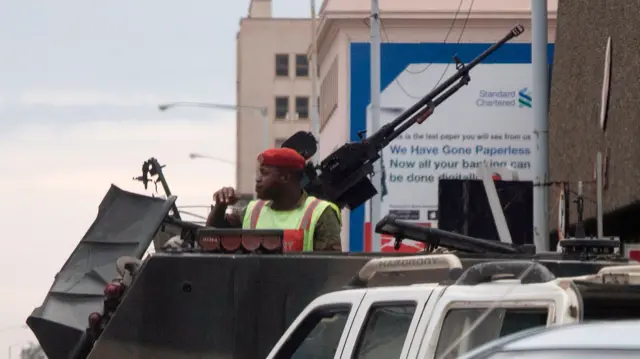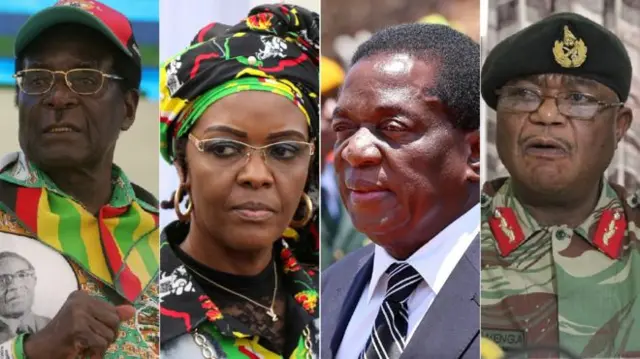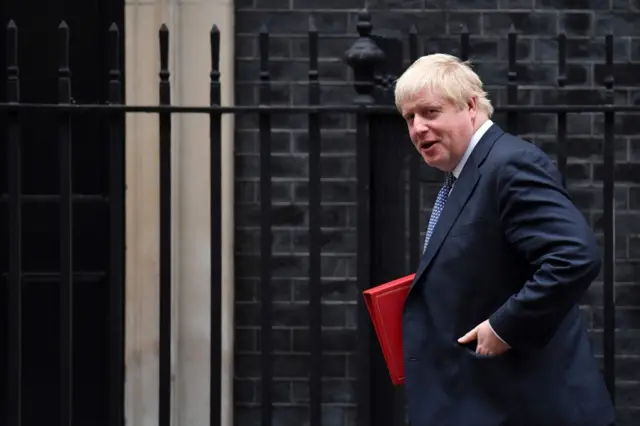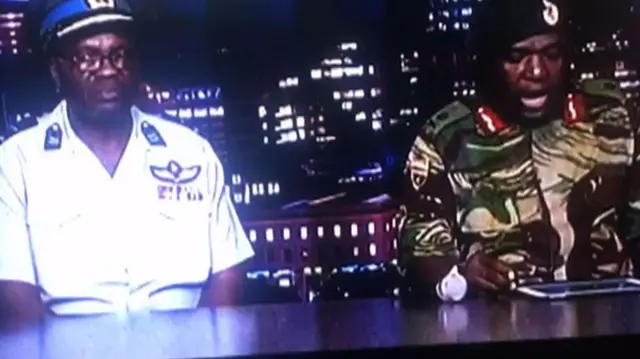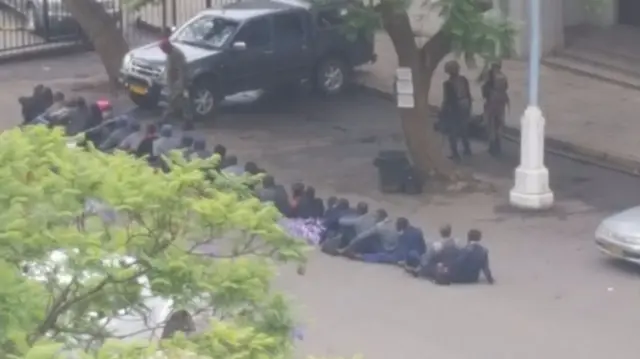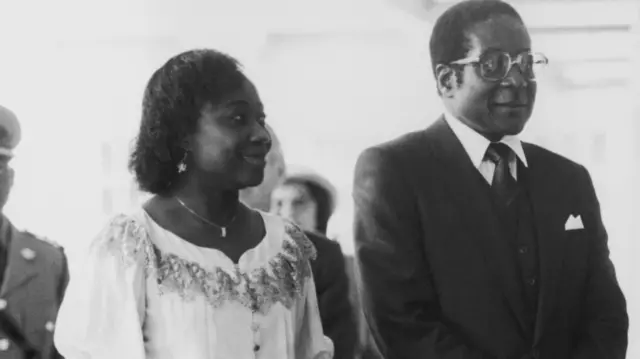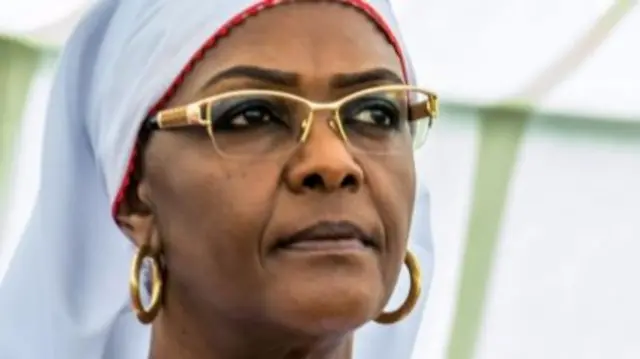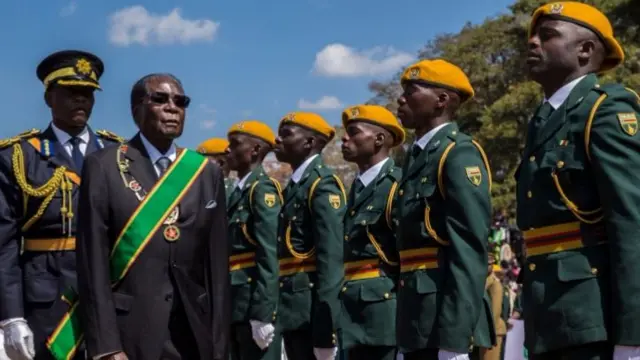China 'paying close attention'published at 14:02 GMT 15 November 2017
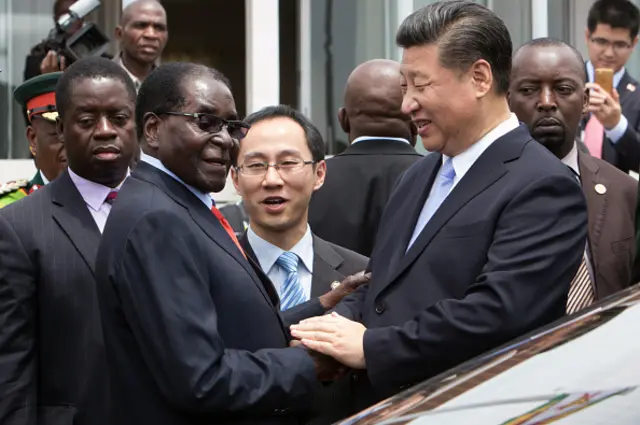 Image source, AFP
Image source, AFPChina's Xi Jinping visited Harare and met with Robert Mugabe in 2015
China is Zimbabwe's biggest trading partner, and has stood with the country in the face of western economic sanctions.
Just last week, Gen Constantino Chiwenga - who warned the army was prepared to act to end purges within the ruling Zanu-PF party on Monday - visited Beijing for what China has today stressed was a "normal military exchange".
Chinese foreign ministry spokesman Geng Shuang added:
Quote MessageAs a country that is friendly with Zimbabwe, we are paying close attention to developments of the situation in Zimbabwe.
Quote MessageMaintaining peaceful and stable development accords with the fundamental interests of Zimbabwe and regional countries is the common desire of the international community.
Quote MessageWe hope the relevant parties in Zimbabwe appropriately handle their internal matters."
